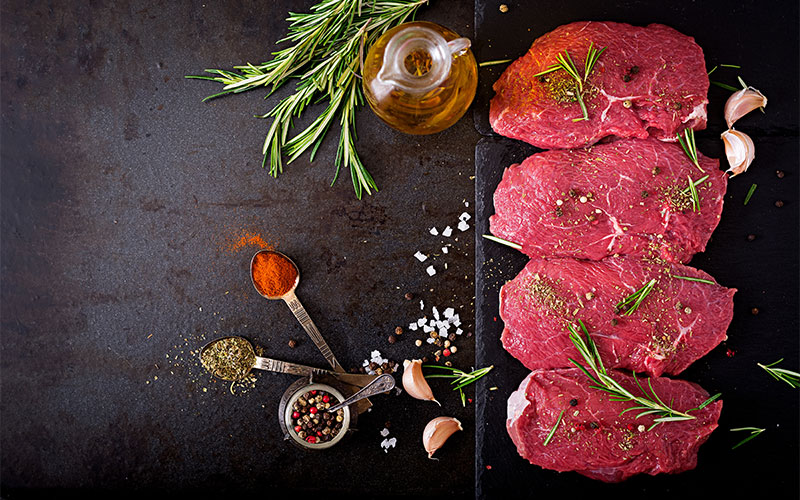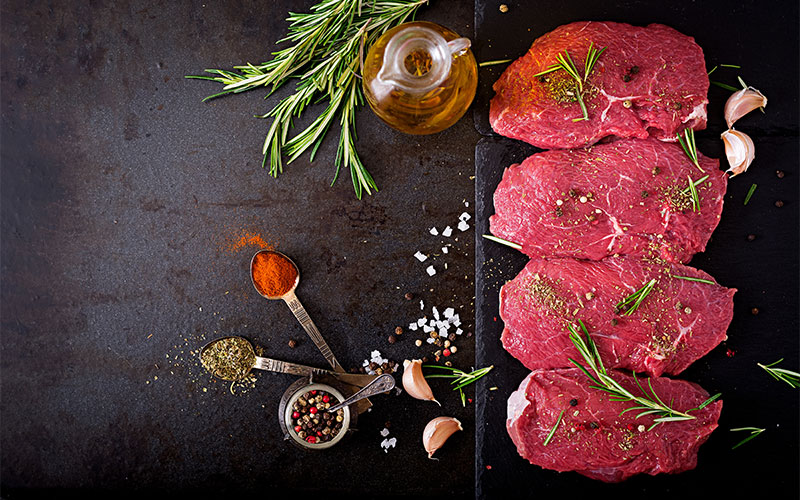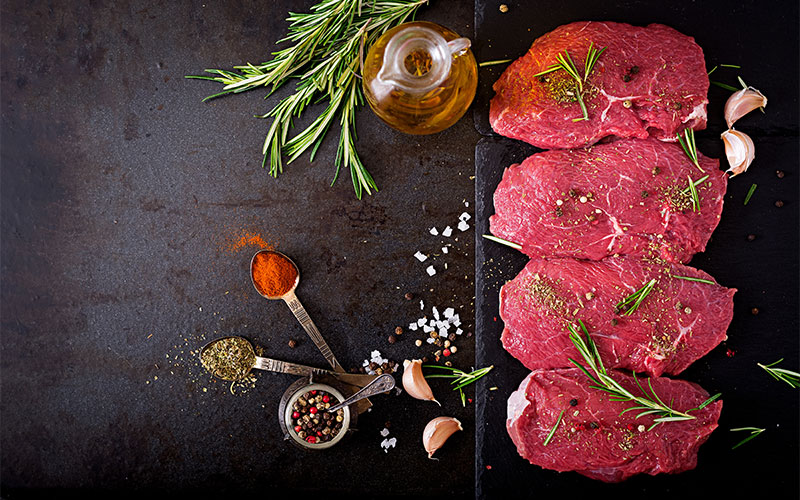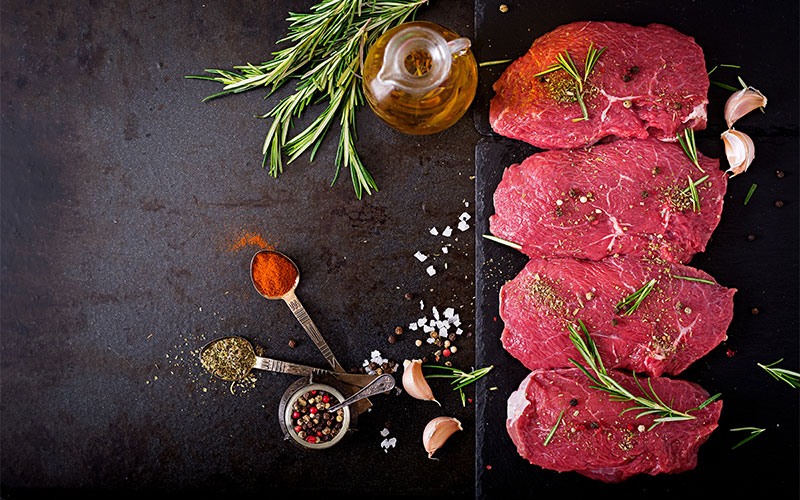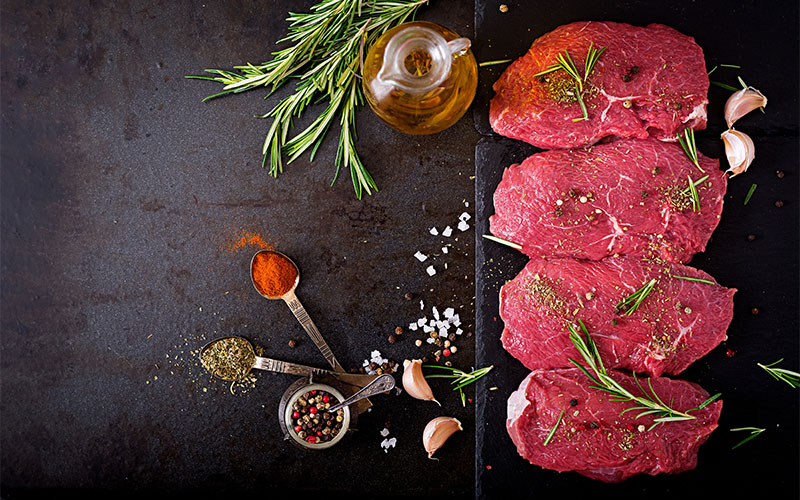
Goat
Nutritional information per 100 grams
Nutrition Facts
| Calories | Protein | Fat | Carbs | Sugar | Fiber |
|---|---|---|---|---|---|
| 143 | 27g | 3g | 0g | 0g | 0g |
Highlights
1. High-Quality Protein: Goat meat is an excellent source of high-quality protein, containing all the essential amino acids necessary for muscle building, repair, and overall bodily functions.
2. Rich in Iron: Goat meat provides a significant amount of iron, essential for the production of red blood cells and the prevention of anemia. Adequate iron intake supports energy levels and overall vitality.
3. High in Vitamin B-12: Goat meat is a rich source of vitamin B-12, crucial for neurological function, DNA synthesis, and the formation of red blood cells. Adequate B-12 intake supports brain health and energy metabolism.
4. Good Source of Potassium: Goat meat contains potassium, an essential mineral vital for regulating blood pressure, fluid balance, and muscle function. Including potassium-rich foods like goat meat in the diet helps maintain overall health.
5. Nutrient-Dense: In addition to protein, iron, and vitamin B-12, goat meat also provides other essential nutrients such as zinc, phosphorus, and magnesium, contributing to overall nutritional balance and well-being.
6. Sustainable and Environmentally Friendly: Goats are efficient converters of roughage into high-quality protein, making them a sustainable livestock option. Consuming goat meat supports sustainable agricultural practices and reduces the environmental impact associated with meat production.
2. Rich in Iron: Goat meat provides a significant amount of iron, essential for the production of red blood cells and the prevention of anemia. Adequate iron intake supports energy levels and overall vitality.
3. High in Vitamin B-12: Goat meat is a rich source of vitamin B-12, crucial for neurological function, DNA synthesis, and the formation of red blood cells. Adequate B-12 intake supports brain health and energy metabolism.
4. Good Source of Potassium: Goat meat contains potassium, an essential mineral vital for regulating blood pressure, fluid balance, and muscle function. Including potassium-rich foods like goat meat in the diet helps maintain overall health.
5. Nutrient-Dense: In addition to protein, iron, and vitamin B-12, goat meat also provides other essential nutrients such as zinc, phosphorus, and magnesium, contributing to overall nutritional balance and well-being.
6. Sustainable and Environmentally Friendly: Goats are efficient converters of roughage into high-quality protein, making them a sustainable livestock option. Consuming goat meat supports sustainable agricultural practices and reduces the environmental impact associated with meat production.
About This Meat
Goat meat, also known as mutton or chevon, refers to the flesh of domestic goats (Capra aegagrus hircus) that is consumed as food. Goat meat is widely consumed in many cultures around the world, prized for its unique flavor, tenderness, and nutritional value. It is commonly used in various cuisines, including Mediterranean, Middle Eastern, Caribbean, and African cuisines, where it is featured in dishes such as curries, stews, roasts, and kebabs. Goat meat offers a lean and flavorful alternative to more commonly consumed meats like beef and pork, making it a versatile and delicious addition to a balanced diet.
Vitamins & Nutrients
- Cholesterol: 75 mg
- Sodium: 63 mg
- Potassium: 390 mg
- Vitamin A: 6%
- Vitamin C: 0%
- Calcium: 3%
- Iron: 16%
- Vitamin D: 0%
- Vitamin B-6: 25%
- Vitamin B-12: 45%
- Magnesium: 7%
- Sodium: 63 mg
- Potassium: 390 mg
- Vitamin A: 6%
- Vitamin C: 0%
- Calcium: 3%
- Iron: 16%
- Vitamin D: 0%
- Vitamin B-6: 25%
- Vitamin B-12: 45%
- Magnesium: 7%
